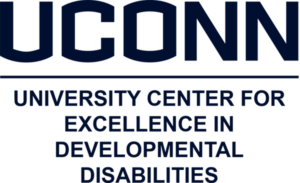AT Act Programs Support “Long COVID”

By Admin on Nov 17, 2021 09:10 am
AT Act Programs Support “Long COVID” – AT3 Center News & Tips (at3centerblog.com)
In this latest COVID-19 Issue Brief, AT3 Center highlights the ways AT Act Programs can and are supporting individuals with post-COVID conditions (long COVID).
What Are “Post-COVID Conditions (Long COVID)?”
According to the CDC, post-COVID conditions are “a wide range of new, returning, or ongoing health problems people can experience four or more weeks after first being infected with the virus that causes COVID-19.” Often referred to as “long COVID,” the scientific name is “Post-Acute Sequelae of SARS-CoV-2 infection (PASC),” and may also be referenced as “long-haul COVID,” “post-acute COVID,” “long-term effects of COVID,” and “chronic COVID.” People who experience long COVID may have had severe, mild, or asymptomatic COVID-19 in the days or weeks after their initial infection with the virus. New research (not yet peer-reviewed) suggests persons with breakthrough infections who were fully vaccinated and under age 60 may be protected from long COVID, but those over age 60 are not.
Long COVID presents as different health problems and combinations of symptoms within a wide range of severity. Common symptoms are extreme fatigue, shortness of breath, problems with cognition, and a racing heartbeat. Neurological symptoms appear to be the most enduring; many long COVID patients report problems with memory and “brain fog.” Children, as well as adults, may experience long COVID. Some studies suggest more women than men may acquire long COVID. (Read some experiences of people living with long COVID.)
In February of 2021, the NIH announced a new initiative to study long COVID. Among the questions the initiative seeks to answer is, “Does SARS-CoV-2 infection trigger changes in the body that increase the risk of other conditions, such as chronic heart or brain disorders?” As of July 2021, long COVID can be considered a disability under the Americans with Disabilities Act (ADA), Section 504, and Section 1557 if the condition substantially limits one or more major life activities.
The Unique Role of AT Act Programs
Persons with long COVID may be experiencing disability for the first time in their lives. The national field of State and Territory Assistive Technology (AT) Act Programs has spent decades committed to serving individuals of all ages with all kinds of disabilities (and combinations of disabilities) wherever they live, learn, work, and play. AT Act Programs uniquely understand and respond to the needs of adults and children that arise from temporary and long-term disabilities. AT Act Programs provide a stigma-free environment for persons with disabilities (and those who serve or love them) to learn about, try out, and acquire the assistive technologies that maintain or improve independence. As we learn more about how to treat long COVID, those experiencing long-term effects from COVID-19 can benefit from the AT services millions of people have sought for staying in or getting back into their lives.
For example, AT Act Programs provide access to:
AT for Fatigue and Mobility:
- equipment for bathroom safety
- transport wheelchairs and rollators for reduced stamina and stability
- gadgets for completing daily living tasks with reduced dexterity (from joint and muscle pain)
AT for Memory and Cognition:
- an understanding of built-in features of iOS and Android operating systems and apps common to smartphones
- loans of tablet computers with apps for accomplishing tasks and goals identified by the borrower
- smart pens for keeping up with meetings (or productivity apps that sync to audio recordings)
- low-tech solutions and strategies for remembering medications and other essentials
- smart speakers and how to use them to support cognition
AT for Social Isolation and Telehealth:
- loans of tablet computers and laptops for video conferencing, social media, email, and recreation
- Echo Show and similar technologies
- simplified connected devices for memory impairment
- alternative computer access
- assistive listening devices
AT for Work:
- alternative workstations and workstation adaptations
- strategies and technologies for improving stamina at work
- information and referral for rehabilitation services and a deep knowledge of cross-disability services as a point of entry for those newly disabled
AT Act Programs provide free demonstrations of assistive technologies in an environment that is without pressure to choose any particular product. The programs additionally provide free or low-cost short-term loans of devices to fill a temporary need or to trial before deciding to purchase, as well as counseling on funding options. AT Act Programs are staffed by professionals who may be AT users themselves and who can link visitors to additional services as necessary or help problem-solve the needs of others in their lives (clients, family members, students). AT Act Programs are the only service network that provides this kind of solutions-driven, cross-disability, multi-age, assistive technology support for maintaining the independence of persons living with long COVID in the pandemic and post-pandemic world.

